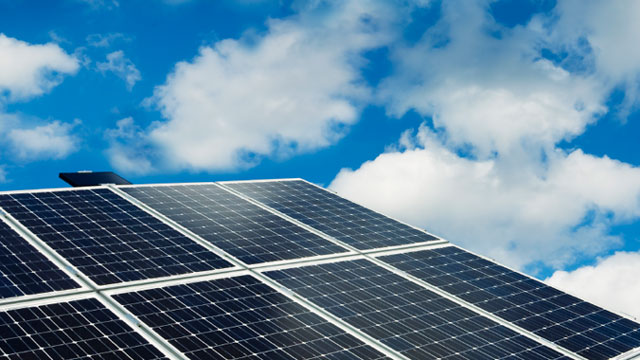
Google’s planned US$12m (R120m) investment in a US$260m solar photovoltaic (PV) power plant near Kimberley in the Northern Cape is simply a sound investment decision and will generate good publicity for the cash-rich online giant, according to industry analysts.
On Thursday, Google announced that it plans to invest the money in the 96MW Jasper solar plant that is expected to generate enough electricity to power 30 000 homes when completed.
Dirk de Vos, a Cape Town-based consultant to the telecommunications and renewable energy sectors, says the only thing that surprised him about Thursday’s announcement was Google’s involvement.
“I don’t know why Google is doing it,” he says. The Jasper project is a “stock-standard PV plant with panels imported from China”.
“Google is a minority shareholder. It doesn’t control the project, and there’s nothing special about it as far as solar projects go,” De Vos adds.
Google is investing less than 5% of the estimated $260m project cost.
De Vos says there are three rounds of bidding planned for the 1GW of renewable energy projects the South African government, through state-owned utility company Eskom, has offered to market. “Jasper is a round-two project. The three bidding windows were meant to be long finished, but there have been delays so the third round has yet to happen.”
De Vos says the Jasper project is one of the largest the continent has seen and is likely to prove a sensible investment for Google.
“The only real risks are currency fluctuations, which we’ve seen this week, and sovereign risk, though the latter’s minimal because government guarantees it will buy the electricity.”
The power the new plant will produce is “not for Google’s own use”, but the company has a “cash pile” and looks at diverse investments, including renewal energy projects. Google has committed more than $1bn to renewable energy investments to date, most of them in the US.
“Google gets a good story out of it, too,” De Vos says. “It gets to say ‘we support green energy’.”
Because projects like Jasper offer so little risk, De Vos suggests that if Google hadn’t invested in the project plenty of other companies would have. “There’s a great deal of interest in these projects and very little risk. Government guarantees a 20-year contract and will pay the tariff agreed upon in your original bid.”

The contract also means government agrees to purchase as much or as little power as the Jasper project produces.
The move also shows government that Google is interested in making investments in the country and could lead to future local opportunities for the US company, De Vos says. “It’s PR. That’s what it is. Good PR and a good yield [on investment].”
Chris Yelland, MD at specialist publisher EE Publishers and an expert on energy matters in South Africa, echoes De Vos’s sentiments. “I guess companies like to be seen to be investing in green projects. It’s good PR.”
However, Yelland warns that the sorts of long-term contracts Eskom is entering into with renewable energy producers could come back to bite the utility company, and the taxpayer.
“With these sorts of projects, Eskom enters into a power purchase agreement at a predetermined formula for the next 20 years.”
Even if the utility can get power cheaper elsewhere, it’s contractually bound to purchase whatever Jasper produces. “I think Eskom and government may live to regret the day they sign 20-year contracts to buy renewable energy. The world can change a lot in 20 years.”
Yelland says Eskom typically pays about R1,50/kWh for renewable energy, a substantial premium on the 55c/kWh it costs to produce electricity itself. “If Eskom brings in piped gas from Mozambique it, and taxpayers, may regret this,” Yelland argues.
Australian mining company BHP Billiton serves as an example, according to Yelland. “Eskom has signed a 30-year contract to supply BHP Billiton with power. Today, that company is paying half of the cost price, so Eskom loses money for every kilowatt-hour they deliver. The deal made sense 15 years ago when the contract was signed.” — (c) 2013 NewsCentral Media
- See also: Google to pour R120m in SA solar plant




